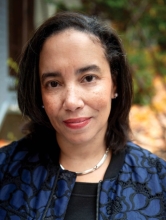
Team
Diane Hughes
Diane Hughes (she/her) is a developmental and community psychologist whose research focuses on parents and adolescents in the U.S. using a social justice lens. Her work seeks to understand how children learn race as a social concept - and develop their own racial identities - as a function of internal developmental mechanisms, adult teachings, and racialized patterns they observe across various settings such as schools, playgrounds, neighborhoods, the media, and the larger social structure. She has particularly focused on outlining the strategies that Black parents use to protect children from, and prepare them to navigate, the harms that racism at all levels (from individual to structural) can cause. Her pioneering conceptual work on “ethnic-racial socialization” has been foundational to a field of “ethnic-racial socialization research” that is now firmly established within developmental science, providing concepts, terminology and definitions that have guided research and intervention for two decades and that are widely used in the popular press and social media.
Hughes’ research has been published in leading peer review journals in developmental and community psychology including Developmental Psychology, Child Development, Journal of Research in Adolescence, and American Journal of Community Psychology. She is routinely called upon to give workshops, interviews, lectures, and consultation on how children learn race and how parents (do and should) teach it from a wide variety of external organizations ranging from local community organizations to large national foundations, organizations and government agencies. She is the recipient of numerous awards in recognition of her commitment to diversity and racial justice, including the Society for Research in Child Development and the Society for Research in Adolescence, among others.

Blair Cox
Blair Cox (she/her) is a PhD Candidate in the Psychology and Social Intervention program in Applied Psychology at NYU Steinhardt. She is interested in the intersection between racial equity and public education. Her research explores 1) school-based interventions aimed to reduce racial disparities in education, 2) school racial climate, and 3) the way white students learn about race. Blair is committed to community partnered, strengths-based, applied research exploring setting-level interventions in the pursuit of anti-racism.

Trenel Francis-Porter
Trenel Francis-Porter (she/her) is an advanced-year doctoral student in the Psychology and Social Intervention (PSI) program at NYU Steinhardt. Her current research interests include understanding how parental academic socialization practices influence adolescents' academic outcomes for low-income, racial-ethnic minority families. She has contributed to literature on immigrant families' access to health and human services, as well as literature on hook up behavior and emerging adults' relationship attitudes and expectations. Trenel is a Caribbean American woman, originally from Staten Island, NY. She holds a Bachelor's of Science with Honors degree in Human Development and minor in Education from Cornell University.

Nancy Hill
Nancy Hill (she/her) is the Charles Bigelow Professor of Education at Harvard University. She is a developmental psychologist whose research focuses on parenting and adolescent development. Hill’s research focuses on two broad areas. First, she studies the ways race, socioeconomic status, and community context interact and impact youths’ opportunities for upward mobility, especially through secondary school and postsecondary transitions. Second, her research focuses on the relational supports and mechanisms associated with adolescents’ emerging sense of purpose and views of the economy as they influence post-secondary transitions to college and career. These include familial and school-based supportive relationships and how they support youth as they engage in school, succeed academically and hone their goals, aspirations, and sense of purpose. Hill is known for her work identifying developmentally sensitive strategies to maintain parental involvement in education during adolescence.
Hill was a recipient of the William T. Grant Foundation’s Distinguished Faculty Fellowship to support her engagement with the Massachusetts’ Executive Office on Education, under Governor Deval Patrick. She was awarded the Ernest Hilgard Award for Lifetime contributions to psychology from Division 1 of the American Psychological Association. Learn more here: www.nancyehill.com.
Special thanks to our research team!
Sohini Das
Olga Pagán, PhD
Whitney Polk, PhD
Alex Watford, PhD
Gina Nadaya
South Orange/Maplewood Community Coalition on Race
School Racial Climate Blog
Stories teach us about life, about ourselves and about others. We asked people in a very different roles — including parent advocates, researchers, school administrators, and community organizers — and from very different racial backgrounds to share their racial experiences in school.
A Deep Dive into Elements of School Racial Climate
Watch videos from researchers and educators to learn more about school racial climate!




